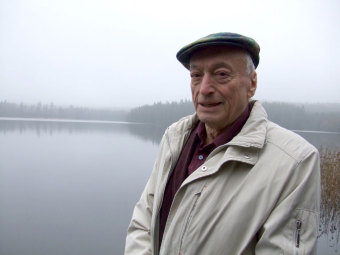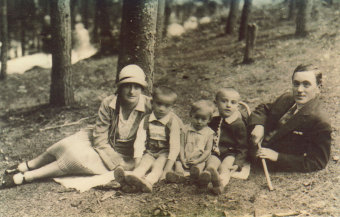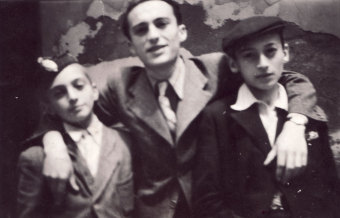Benjamin Grünfeld (*1928)

© Nina Werth
(Benny Grünfeld: A teenager in Hitler’s death camps. In collaboration with Magnus Henrekson and Olle Häger (Dallas: Benbella Books, 2007), p. 86.)
(Benny Grünfeld: A teenager in Hitler’s death camps. In collaboration with Magnus Henrekson and Olle Häger (Dallas: Benbella Books, 2007), pp. 97–98.)
“I had frequent dreams during my time in the camp. They were almost always nightmares, and of a very special kind. Of course, our daily life was a nightmare in itself. In my nocturnal dream world, I repeatedly tried to convince myself that the evil all around me was simply a nightmare from which I would soon awake. But each morning I awoke to the same painful realization that the nightmare was nothing less than reality itself.”[1]
Benjamin Grünfeld, the third of four sons of Hungarian Jews, was born on May 6, 1928, in Cluj, Romania. His father, Josef, was a recognized watchmaker and goldsmith, and the sons, too, were artistically and musically gifted. In 1940, Cluj (Hungar. Kolozsvár) fell to Hungary, and for Benjamin, World War II began in March 1944: His oldest brother, Armand, was inducted into the Hungarian army, and the remaining family members were arrested by the Hungarian police. After a few weeks in an interim camp, the entire family was deported to Auschwitz. They were separated at the ramp: the youngest brother, Sandor, and the parents were immediately sent to their deaths, while Herman and Benjamin were taken through Birkenau to the Buna/ Monowitz concentration camp. Initially deployed in the cement detachment, they had to do extremely heavy labor until Herman managed to join the goldsmiths, and Benjamin, through his intercession, was transferred to “Kommando 26” as camp bookkeeper and a designer of greeting cards.
Time and again, Benjamin Grünfeld narrowly avoided the selections: once, only because his Kapo championed him. Along with the other prisoners, the brothers were forced to take part in the death march on January 18, 1945. From Gleiwitz, they were taken in open freight cars to the Mittelbau-Dora concentration camp, where they were forced to work in the armaments industry. Finally, their strength at an end, they arrived at Bergen-Belsen, where they were freed by the British Army on April 15, 1945.
Then Benjamin worked at first for the British, painting English-language traffic signs. He developed diarrhea and had to be hospitalized.
(SP; transl. KL)
Benjamin Grünfeld, oral history interview
(Swedish, with German subtitles)




















